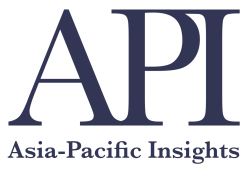Philippines extends maritime economic entitlement in UN submission
Photo from the Philippine Coast Guard.
By Manuel Mogato | Date 06-19-2024
NEW YORK — A senior Filipino diplomat said that the Philippines had formally announced the extension of its maritime economic entitlements under the 1982 United Nations Convention on the Law of the Sea (UNCLOS).
Ambassador Marshall Louis Alferez, the Foreign Affairs Assistant Secretary for Maritime and Ocean Affairs, said the Philippines had submitted information about its plan to extend its continental shelf limits up to 350 nautical miles from its nearest coastline.
He said information was relayed to the UN Commission on the Limits of the Continental Shelf (CLCS), extending its continental shelf (ECS) in the West Palawan Region in the West Philippine Sea/South China Sea. (Also read: Marcos slams China’s actions in the West Philippine Sea)
Under Article 76 of the UN Convention on the Law of the Sea (UNCLOS), a coastal State such as the Philippines is entitled to establish the outer limits of its continental shelf comprising the seabed and subsoil of the submarine areas extending beyond 200 nautical miles (NM) but not to exceed 350 nautical miles from the baselines from which the breadth of the territorial sea is measured.
Alferez said the National Mapping and Resource Information Agency (NAMRIA) had led the Extended Continental Shelf Technical Working Group (ECS-TWG) that worked on the submission for over 15 years.
For his part, NAMRIA Administrator Peter Tiangco welcomed the official ECS submission and thanked the ECS-TWG for their work in gathering and processing data on geodetic and hydrographic information, and geophysical and geological information to substantiate the submission.
Alferes said the submission is a declaration not only of the Philippines’ maritime entitlements under UNCLOS but also of the country’s commitment to the responsible application of its processes.
He also underscored the significance of the submission in securing the Philippines’ sovereign rights and maritime jurisdictions in the West Philippine Sea, noting that the 2016 Award on the South China Sea Arbitration confirmed the Philippines’ maritime entitlements and rejected those that exceeded geographic and substantive limits under UNCLOS.
“Incidents in the waters tend to overshadow the importance of what lies beneath”, said Alferez.
“The seabed and the subsoil extending from our archipelago up the maximum extent allowed by UNCLOS hold significant potential resources that will benefit our nation and our people for generations to come. Today we secure our future by making a manifestation of our exclusive right to explore and exploit natural resources in our ECS entitlement.”
Alferez said the Philippine submission does not prejudice discussions with relevant coastal States that may have legitimate ECS claims measured from their respective lawful baselines under UNCLOS.
“We consider our submission as a step in discussing delimitation matters and other forms of cooperation moving forward,” he said. “What is important is the Philippines puts on record the maximum extent of our entitlement.”
Ambassador Antonio Lagdameo, the Permanent Representative of the Philippine Mission to the United Nations in New York, also stressed the submission “can reinvigorate efforts of States to demonstrate their readiness to pursue UNCLOS processes in the determination of maritime entitlements and promote a rules-based international order.”
This is the second time the Philippines has submitted an ECS entitlement.
In April 2009, the Philippines made a partial submission to the Philippine Rise, which the CLCS validated in 2012, resulted in an additional 135,506 square kilometers of seabed area for the Philippines.
In that submission, the Philippines stated that it reserved the right to make submissions in other areas.
The first submission was also undertaken by the ECS-TWG, an inter-agency body composed of technical, legal, diplomatic, political, and law enforcement experts from several Philippine offices and agencies, including NAMRIA, DFA, Department of Justice, Department of Energy, National Security Council, Department of Environment and Natural Resources – Mines and Geosciences Bureau, University of the Philippines (UP) Institute for Maritime Affairs and Law of the Sea, UP National Institute of Geological Sciences, the former National Coast Watch Council Secretariat, Department of National Defense, Office of the Solicitor General and Philippine Coast Guard.

